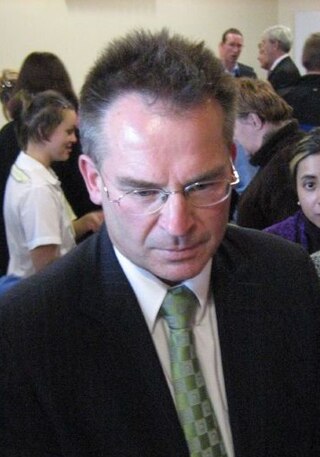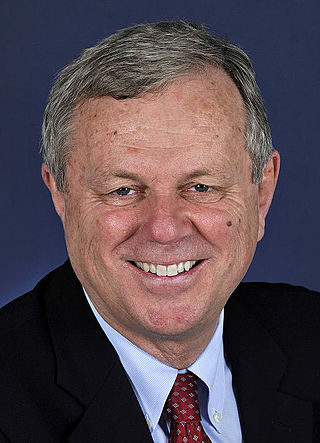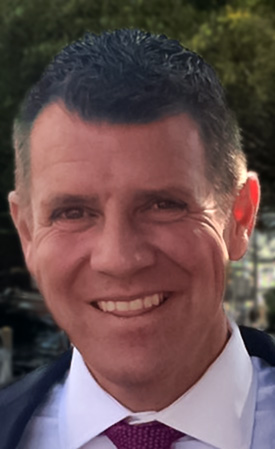
The Country Liberal Party of the Northern Territory (CLP), commonly known as the Country Liberals, is a centre-right political party in Australia's Northern Territory. In local politics, it operates in a two-party system with the Australian Labor Party (ALP). It also contests federal elections as an affiliate of the Liberal Party of Australia and National Party of Australia, the two partners in the federal coalition.

The Legislative Council, or upper house, is one of the two chambers of the Parliament of South Australia. Its central purpose is to act as a house of review for legislation passed through the lower house, the House of Assembly. It sits in Parliament House in the state capital, Adelaide.

The Family First Party was a conservative political party in Australia which existed from 2002 to 2017. It was founded in South Australia where it enjoyed its greatest electoral support. Since the demise of the Australian Conservatives into which it merged, it has been refounded in that state as the Family First Party (2021), where it contested the state election in 2022, but failed to win a seat.

Norfolk Island elects on territorial level a legislature. The Norfolk Island Legislative Assembly has 9 members, elected for a three-year term. The last assembly was the 14th, elected on 13 March 2013. On 17 June 2015, the Australian government abolished the assembly, ending self-government on the island. Norfolk Island Regional Council, a local government body with significantly-restricted powers, was established in July 2016 to perform local-level governance on the island.
An independent, non-partisan politician or non-affiliated politician is a politician not affiliated with any political party or bureaucratic association. There are numerous reasons why someone may stand for office as an independent.

The 2007 New South Wales state election was held on Saturday, 24 March 2007. The entire Legislative Assembly and half of the Legislative Council was up for election. The Labor Party led by Morris Iemma won a fourth four-year term against the Liberal-National coalition led by Peter Debnam.

The Norfolk Island Legislative Assembly was the prime legislative body of Norfolk Island from 1979 to 2015. Formed after the Norfolk Island Act 1979 was passed in the Australian Parliament, its first members were elected on 10 August 1979. The last assembly was the 14th, elected on 13 March 2013. On 17 June 2015, the Australian Government abolished the assembly, ending self-government on the island. Norfolk Island Regional Council, a local government body instituted under New South Wales law and with significantly-restricted powers, was established in July 2016 to perform local-level governance on the island.

The 2006 Victorian state election, held on Saturday, 25 November 2006, was for the 56th Parliament of Victoria. Just over 3 million Victorians registered to vote elected 88 members to the Legislative Assembly and, for the first time, 40 members to the Legislative Council under a proportional representation system. The election was conducted by the independent Victorian Electoral Commission.

State elections were held in South Australia on 17 September 1977. All 47 seats in the South Australian House of Assembly were up for election. The incumbent Australian Labor Party led by Premier of South Australia Don Dunstan won a fourth term in government, defeating the Liberal Party of Australia led by Leader of the Opposition David Tonkin.

Elections to the Australian Capital Territory Legislative Assembly were held on Saturday, 16 October 2004. The incumbent Labor Party, led by Jon Stanhope, was challenged by the Liberal Party, led by Brendan Smyth. Candidates were elected to fill three multi-member electorates using a single transferable vote method, known as the Hare-Clark system. The result was a clear majority of nine seats in the 17-member unicameral Assembly for Labor. It marked the first and so far only time in the history of ACT self-government that one party was able to win a majority in its own right. Stanhope was elected Chief Minister at the first sitting of the sixth Assembly on 4 November 2004. The election was conducted by the ACT Electoral Commission and was the second time in Australia's history that an electronic voting and counting system was used for some, but not all, polling places, expanding on the initial trial of the system at the 2001 ACT election.

Elections were held in the state of Western Australia on 10 February 2001 to elect all 57 members to the Legislative Assembly and all 34 members to the Legislative Council. The two-term Liberal–National coalition government, led by Premier Richard Court, was defeated by the Labor Party, led by Opposition Leader Dr Geoff Gallop, in a landslide.

The 2010 South Australian state election elected members to the 52nd Parliament of South Australia on 20 March 2010. All seats in the House of Assembly or lower house, whose current members were elected at the 2006 election, and half the seats in the Legislative Council or upper house, last filled at the 2002 election, became vacant.

State elections were held in South Australia on 6 April 1918. All 46 seats in the South Australian House of Assembly were up for election. The incumbent Liberal Union government led by Premier of South Australia Archibald Peake defeated the opposition Australian Labor Party led by Leader of the Opposition Andrew Kirkpatrick. Each district elected multiple members, with voters casting multiple votes.

The 2015 New South Wales state election was held on Saturday 28 March 2015. Members were elected to all 93 seats in the Legislative Assembly using optional preferential voting. Members were also elected to 21 of the 42 seats in the Legislative Council using optional preferential proportional representation voting. The election was conducted by the New South Wales Electoral Commission.

The 2017 Western Australian state election was held on Saturday 11 March 2017 to elect members to the Parliament of Western Australia, including all 59 seats in the Legislative Assembly and all 36 seats in the Legislative Council. The eight-and-a-half-year two-term incumbent Liberal–WA National government, led by Premier Colin Barnett, was defeated in a landslide by the Labor opposition, led by Opposition Leader Mark McGowan.

The 2018 South Australian state election to elect members to the 54th Parliament of South Australia was held on 17 March 2018. All 47 seats in the House of Assembly or lower house, whose members were elected at the 2014 election, and 11 of 22 seats in the Legislative Council or upper house, last filled at the 2010 election, were contested. The record-16-year-incumbent Australian Labor Party (SA) government led by Premier Jay Weatherill was seeking a fifth four-year term, but was defeated by the opposition Liberal Party of Australia (SA), led by Opposition Leader Steven Marshall. Nick Xenophon's new SA Best party unsuccessfully sought to obtain the balance of power.
The ACT Labor Party, officially known as the Australian Labor Party (Australian Capital Territory Branch) and commonly referred to simply as ACT Labor, is the ACT branch of the Australian Labor Party (ALP). The branch is the current ruling party in the Capital Territory and is led by Andrew Barr, who has concurrently served as chief minister of the Australian Capital Territory since 2014. It is one of two major parties in the unicameral Australian Capital Territory Legislative Assembly, and is currently in a coalition with the ACT Greens.

The 2021 Western Australian state election was held on Saturday, March 13, to elect members to the Parliament of Western Australia, where all 59 seats in the Legislative Assembly and all 36 seats in the Legislative Council were up for election.

The 2022 South Australian state election was held on 19 March 2022 to elect members to the 55th Parliament of South Australia. All 47 seats in the House of Assembly, and half the seats in the Legislative Council were up for re-election.
The 2010 Norfolk Island legislative election was held on 17 March 2010 to elect the 13th Norfolk Island Legislative Assembly, the prime legislative body of Norfolk Island.















